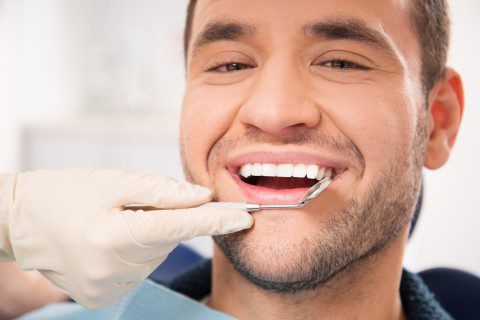Teeth grinding may be a reflex tendency for some people when they’re sleeping or anxious. This movement, called bruxism, sheds away the teeth’s enamel and may sometimes produce an unsightly appearance in the tooth. Two of the major phone surveys done on the topic both found that bruxism is experienced by about 8% of the country’s population, of which young children make up a big proportion – up to 20% of respondents, according to the Sleep Bruxism Review of 2011. In contrast, only 3% of all respondents were over 65 years old.

If bruxism is proving to be a serious problem, then it is a problem that must be nipped in the bud. A dentist, such as Dr. Trey Kenna, DMD FAGD, of Downtown Dental in Greenville, SC, will be most helpful in this field. He can help figure out how to stop the grinding or clenching of your teeth.
Signs of Bruxism
An initial complete checkup in a local family dental health office will reveal the level of grinding you have done on your teeth. Some of the telltale signs that you are suffering from bruxism is when you suddenly feel an even surface in both your teeth sets, or when the teeth’s enamel gradually exposes more layers right down to the dentin. You may also notice how rough or slippery your teeth feels when brushing.
Everyday Health’s Marie Suszynski claims that the sheer force of the grinding can produce up to 250 pounds of pressure. The gradual exposure of the dentin from the grinds increases your tooth’s sensitivity.
What a Dentist Recommends
While teeth grinding is potentially caused by emotional or psychological stress, and may not be easy to address with mere dental devices, many dentists agree that wearing a night guard would keep your teeth safe from damage. Made of waterproof materials, a night guard is worn before sleeping and acts as a buffer between upper and lower teeth. Many night guards are typically used for the upper teeth only, but data from the initial consultation will determine whether or not you need one for the lower teeth as well.
Bruxism or teeth grinding is a condition that can only be permanently stopped by addressing the root of the anxiety or stress, or by determining whether stress is, indeed, the problem. Since that entails time, dentists can prescribe wearing night guards in the meantime, to protect your teeth from potential damage. Your family dentist may also suggest certain treatments, like veneers, crowns or bridges, to bring back your teeth’s beauty once grinding stops.
Sources:
Why are we grinding our teeth so much?, BBC World
Can Anxiety Affect Your Teeth?, EveryDay Health
Sleep bruxism. Conceptual review and update, Orofacial pain, TMJD





